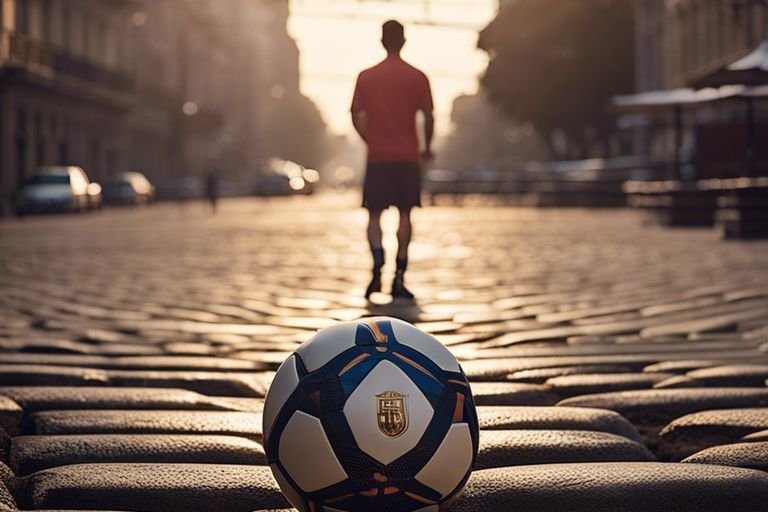As a passionate follower of the beautiful game, I have always been intrigued by the tactical geniuses who have carved out their place in football history as legendary coaches. From Arrigo Sacchi to Sir Alex Ferguson, the best soccer coaches in the world have shaped the game with their innovative strategies and ability to mold talented players into championship-winning teams. In this blog post, I will delve into the world of football strategy and analyze the masters of the game to determine who truly deserves the title of the best soccer coach in the world. Get ready to explore the brilliant minds behind the world’s most successful football teams.
Key Takeaways:
- Jurgen Klopp and Pep Guardiola have been consistently ranked as the top soccer coaches in the world, known for their innovative tactics and ability to build successful teams.
- Tactical flexibility and player management are crucial factors that contribute to a coach’s success, as demonstrated by the achievements of top coaches in adapting their strategies to different opponents and managing diverse group of players.
- Adaptability and leadership are key traits that differentiate great coaches from good ones, as they are able to adjust their approach to meet the ever-changing demands of the game and lead their teams through difficult times.
- Data analysis and sports science have become increasingly important in modern soccer coaching, with top coaches utilizing advanced statistics and cutting-edge technology to optimize their team’s performance and fitness levels.
- Longevity and consistent success are also important factors in determining the best soccer coach, as sustained excellence over a number of seasons and the ability to win trophies in multiple leagues demonstrates a coach’s enduring impact on the sport.
The Great Soccer Coaches of History
The history of soccer is filled with legendary coaches who have revolutionized the sport with their innovative strategies and leadership. These coaches have left an indelible mark on the game and their influence continues to be felt today. In this chapter, I will delve into the careers of some of the greatest soccer coaches in history, analyzing their unique styles and contributions to the sport.
Sir Alex Ferguson – The Master of Man Management
Sir Alex Ferguson is widely regarded as one of the greatest soccer coaches of all time, having enjoyed unparalleled success during his tenure at Manchester United. Known for his exceptional man-management skills, Ferguson had the ability to motivate and inspire his players to perform at their best. He created a winning culture at the club and instilled a strong sense of discipline and work ethic among his team. His ability to handle big egos and effectively manage talented players was a key factor in his success.
Pep Guardiola – The Tactician Extraordinaire
Pep Guardiola has earned a reputation as a master tactician, renowned for his innovative playing style and tactical acumen. He is known for implementing a possession-based, high-pressing game that emphasizes quick passing and fluid movement. Guardiola’s meticulous attention to detail and his ability to adapt his tactics to exploit the weaknesses of opponents have made him one of the most successful coaches in modern football. His emphasis on positional play and pressing has revolutionized the game.
Jose Mourinho – The Pragmatic Strategist
Jose Mourinho is a pragmatic strategist who is known for his tactical flexibility and ability to adapt to different playing styles. He has achieved success at top clubs across Europe by implementing solid defensive structures and effective counter-attacking strategies. Mourinho’s ability to organize his teams defensively and exploit opposition weaknesses has made him a formidable force in the world of soccer. His strong personality and intense focus on winning have earned him a reputation as one of the most formidable coaches in the game.
Modern Masters of Football Strategy
Some of the most influential soccer coaches in the modern era have redefined the game through their innovative strategic approaches. These coaches have not only achieved success on the field but have also left a lasting impact on the sport through their tactical prowess and ability to adapt to the evolving nature of football.
Jurgen Klopp – The High Pressing Innovator
Jurgen Klopp has become synonymous with the high pressing style of play, which has revolutionized modern football. His teams are known for their intense, aggressive pressing from the front, disrupting opposition build-up play and creating scoring opportunities through turnovers in dangerous areas. Klopp’s tactical acumen and ability to instill a strong work ethic in his players have made him a force to be reckoned with in the soccer world. His relentless, high-energy approach has earned him success at top clubs like Borussia Dortmund and Liverpool, where he has captured domestic league titles and the UEFA Champions League.
Diego Simeone – The Defensive Dynamo
Diego Simeone has earned a reputation as a master of defensive organization and discipline. His teams are renowned for their stingy defensive displays, compact shape, and meticulous attention to detail without the ball. Simeone’s tactical philosophy revolves around a strong emphasis on defensive solidity and counter-attacking prowess, which has propelled Atletico Madrid to domestic and European success. His ability to instill a winning mentality and defensive resilience in his players has made him a formidable opponent for any team.
Carlo Ancelotti – The Master of Adaptability
Carlo Ancelotti is revered for his flexibility and adaptability as a coach. Throughout his career, Ancelotti has demonstrated a remarkable ability to tailor his tactics to suit the strengths of his players and the demands of different leagues and competitions. His tactical versatility, combined with a calm demeanor and excellent man-management skills, has allowed him to achieve success at renowned clubs such as AC Milan, Real Madrid, and Bayern Munich. Ancelotti’s tactical astuteness and ability to get the best out of his players make him a revered figure in the world of football.
Analyzing the Traits of a World-Class Soccer Coach
Despite the myriad of coaching styles and techniques employed by soccer coaches around the world, there are certain traits that are universally valued in the best of the best. A world-class soccer coach possesses a unique blend of leadership, tactical intelligence, and player development skills that sets them apart from the rest. In this chapter, I will delve into the key traits that define a masterful soccer coach and examine how these traits contribute to their success on the field.
Leadership and Communication Skills
Leadership and communication skills are crucial for any successful soccer coach. A world-class coach not only leads their team on the field but also inspires and motivates players to give their best performance. Effective communication is essential for conveying tactics, strategies, and individual roles to the team. Clear and concise instructions help players understand their roles and responsibilities, fostering a sense of unity and teamwork throughout the squad. A great coach also knows how to motivate and manage their players’ emotions, ensuring they remain focused and driven throughout the season.
Tactical Intelligence and Innovation
A world-class soccer coach possesses exceptional tactical intelligence and a knack for innovation on the field. They are able to analyze game situations quickly and adapt their strategies and formations in real-time. This enables them to exploit their opponents’ weaknesses and capitalize on scoring opportunities. Furthermore, they are not afraid to think outside the box and introduce new tactics and playing styles that keep their team ahead of the curve. This ability to innovate and adapt to the ever-changing landscape of soccer is a hallmark of a top-tier coach.
Player Development and Motivation
Player development and motivation are essential components of a successful soccer coach’s skill set. The best coaches are adept at identifying and nurturing talent, tailoring their coaching approach to the individual needs of each player. They provide constructive feedback and guidance to help players improve their technical skills and overall performance. By instilling confidence and belief in their players, a top-tier coach can elevate the entire team’s level of play, fostering a winning mentality and a strong sense of camaraderie.
Conclusion
Conclusively, when analyzing the masters of football strategy, it is difficult to determine who the best soccer coach in the world is. Each coach brings their own unique style, tactics and game philosophy to the table, making it nearly impossible to compare them objectively. Some may argue that Pep Guardiola’s possession-based strategy sets him apart, while others may argue that Jurgen Klopp’s heavy metal football and high press tactics make him the best. Ultimately, it is up to you to decide who you believe is the best soccer coach in the world, as it is a subjective matter influenced by personal preference and individual opinion.
FAQ
Q: Who is considered the best soccer coach in the world?
A: There is no definitive answer to this question as it is subjective and varies depending on personal opinions. Some widely recognized names in the world of football coaching include Pep Guardiola, Jurgen Klopp, Zinedine Zidane, and Diego Simeone, among others.
Q: What qualities make a soccer coach the best in the world?
A: The best soccer coaches in the world possess strong leadership abilities, tactical innovation, the ability to develop and motivate players, effective communication skills, and a track record of success in major competitions.
Q: How do soccer coaches influence the game and their team’s performance?
A: Soccer coaches influence the game and their team’s performance through strategic decision-making, player selection, tactics, training methods, motivation, and in-game adjustments. Their ability to read the game and make critical decisions can greatly impact the outcome of matches.
Q: What are some key strategies employed by top soccer coaches?
A: Top soccer coaches often employ pressing and counter-pressing strategies, possession-based playing styles, high-pressing defensive tactics, fluid attacking systems, and set-piece strategies. They also focus on player development and team cohesion to achieve success on the field.
Q: What can aspiring soccer coaches learn from studying the masters of football strategy?
A: Aspiring soccer coaches can learn valuable lessons in leadership, tactical innovation, man-management, and game analysis by studying the approaches and philosophies of the best soccer coaches in the world. They can gain insights into the intricacies of the game and apply them to their own coaching methods.




